‘Like a cancer:’ Rio militias grow, control swaths of city
The latest scheme works like this: Brazilian paramilitary groups buy boxes of cigarettes in neighboring Paraguay for 14 cents a pack and then smuggle them back home, where prices and taxes are much higher, and sell them for up to $2.15.
The cigarettes offer the militias the lion’s share of an estimated $330 million in profits and add to a portfolio of illicit operations the groups have honed over two decades, including imposing surcharges on cable service, electricity and transportation. The groups are also known to conduct extortion and summary executions.
But while investigating the smuggled smokes, authorities found other evidence they deemed more troubling: cameras, online monitoring systems and signs of possible connections between militias and members of Red Command, Rio de Janeiro’s most powerful drug gang.
Those, authorities say, are indications that the militia groups which used to be minor players in the Rio underworld are now becoming shot callers — and not easily controlled.
“It’s like a cancer,” anti-piracy police investigator Mauricio Demetrio said. “It won’t stop.”
Beginning in earnest in the 1990s, the militias were mainly made up of former police officers, firefighters and military men who wanted to combat lawlessness in their neighborhoods. For years, they were even lauded by politicians, including President-elect Jair Bolsonaro, a former army captain who as a congressman called for their legalization in 2008.
In theory at least, the groups were helping to confront what the state could not, even if the trade-offs included tolerating illicit businesses and sometimes murder. Along the way, their brutal methods and control expanded. Today some crime experts argue that militias have become Rio’s biggest security threat, with methods that are being copied in other areas of Latin America’s largest nation.
Text by Peter Prengaman and Sergio Ramalho
Read the full story here
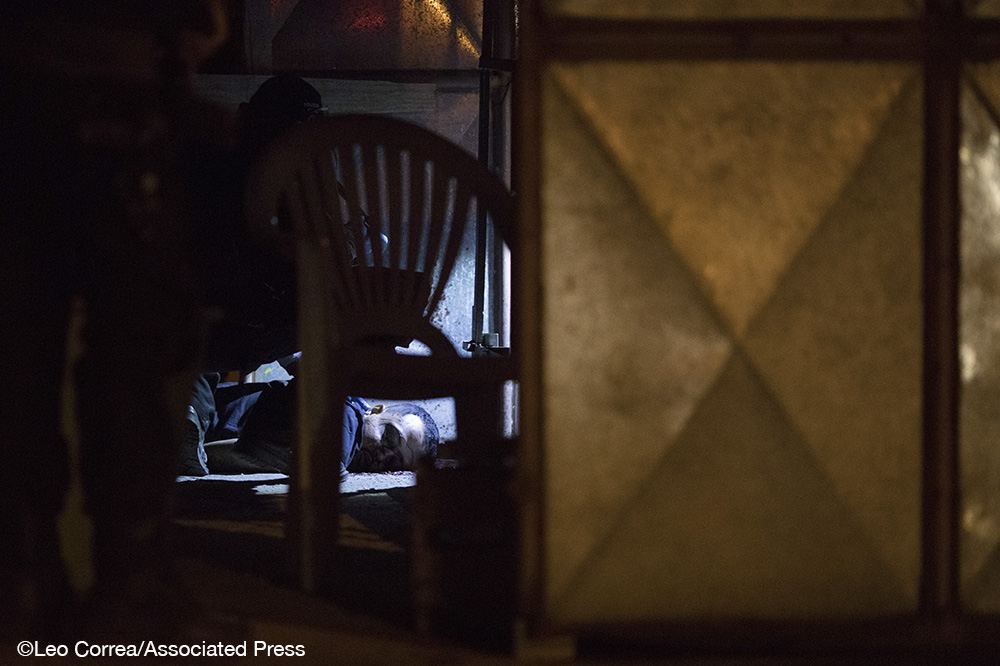
In this Aug. 31, 2018 photo, the bloodied body of a man lays on the floor of a kiosk, as forensic police use a flashlight to inspect the crime scene in Duque de Caxias, greater Rio de Janeiro, Brazil. People living in militia-controlled areas rarely turn to police because there is a good chance that any particular officer is involved. (AP Photo/Leo Correa)
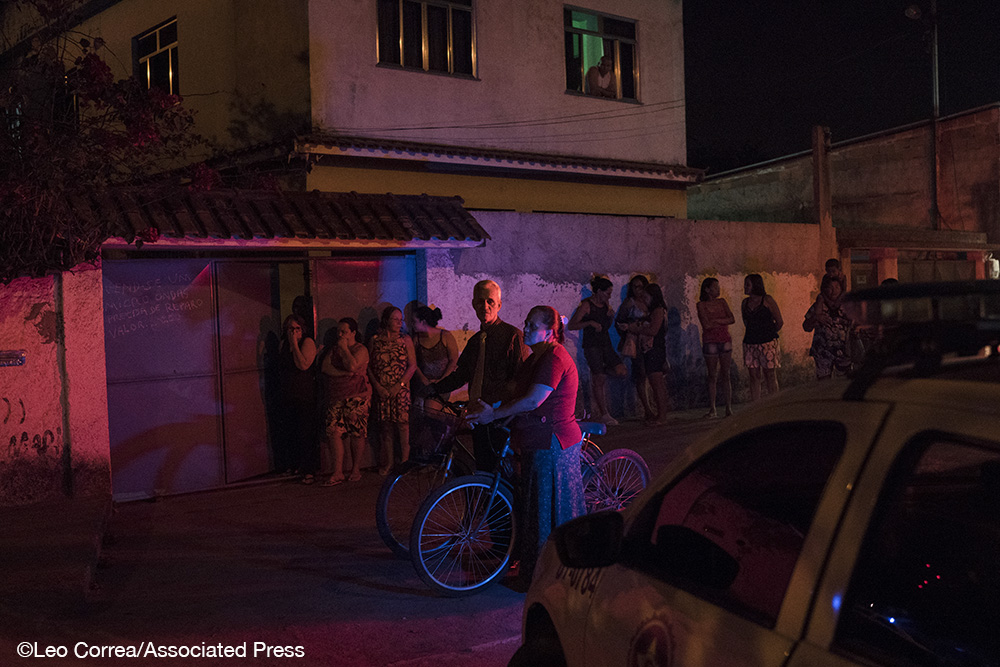
In this Aug. 31, 2018 photo, residents watch police work a crime scene where the body of a man was found on the floor of a kiosk in Duque de Caxias, greater Rio de Janeiro, Brazil. Militias have been fighting with drug traffickers for control of large areas of western Rio. (AP Photo/Leo Correa)
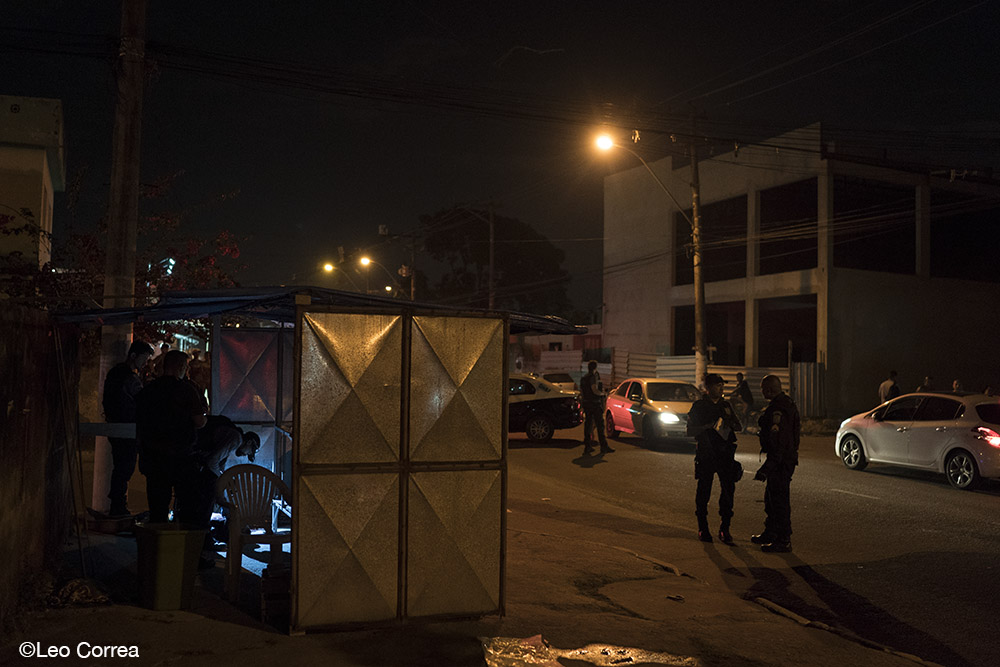
THIS PHOTO GOES WITH STORY RIO MILITIAS BY SERGIO RAMALHO - In this Aug. 31, 2018, photo, forensic police officers use a flashlight to inspect the crime scene where the body of a man was found on a street kiosk, in Duque de Caxias, greater Rio de Janeiro, Brazil. According to the police officers this region have being scenario of confrontations between militia and drug traffickers. (AP Photo/Leo Correa)
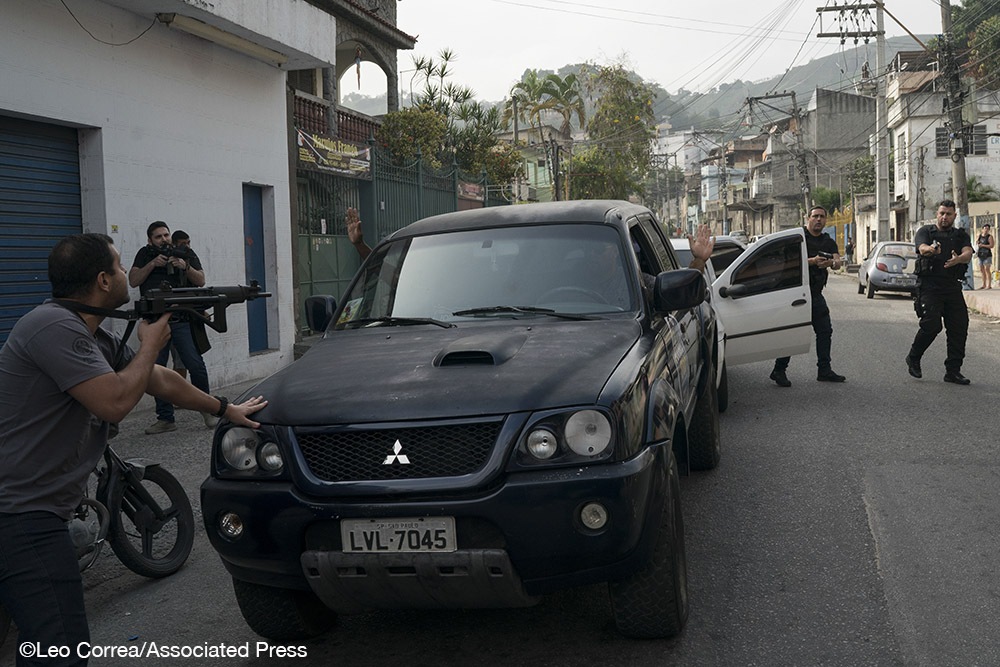
In this Sept. 3, 2018 photo, plain clothed police aim their weapons as they intercept a vehicle with three men inside who are suspected of being members of organized crime and an extortion group in Sao Goncalo, Brazil. Brazil's President Jair Bolsonaro said he wants to shield police from prosecution in the case of on-duty killings, loosen gun laws so more average people are armed and in general crack down on violence with brute force. (AP Photo/Leo Correa)

In this Sept. 3, 2018 photo, a plained clothed police officer escorts an handcuffed man he arrested on suspicion of being members of organized crime and an extortion group in Sao Goncalo, Brazil. Brazil's President Jair Bolsonaro said he wants to shield police from prosecution in the case of on-duty killings, loosen gun laws so more average people are armed and in general crack down on violence with brute force. (AP Photo/Leo Correa)
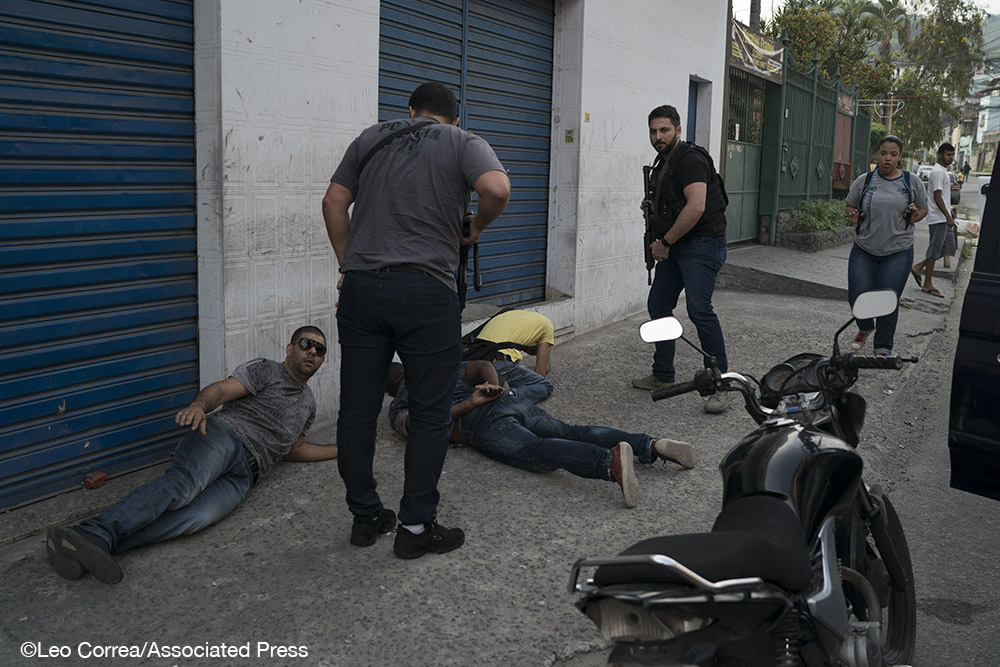
In this Sept. 3, 2018 photo, plained clothed police arrest three men suspected of being members of organized crime and an extortion group in Sao Goncalo, Brazil. Brazil's President Jair Bolsonaro said he wants to shield police from prosecution in the case of on-duty killings, loosen gun laws so more average people are armed and in general crack down on violence with brute force. (AP Photo/Leo Correa)
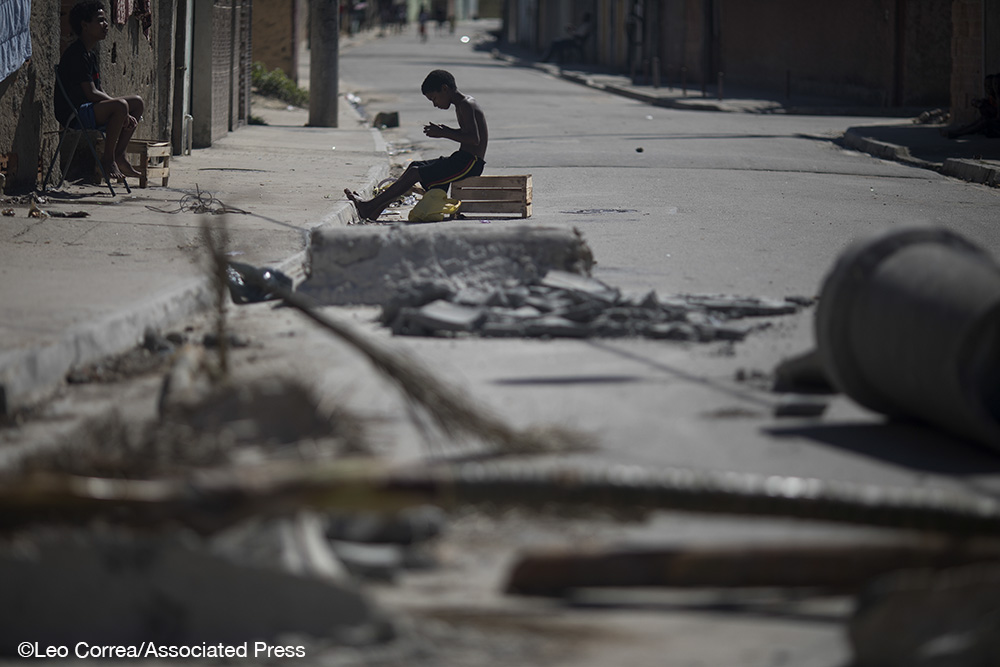
In this Aug. 14, 2018 photo, a youth sits next to a road block built by drug traffickers in the Antares slum of Rio de Janeiro, Brazil. Drug traffickers block roads to keep out police and rival gangs, forcing car driving residents to use alternative streets. (AP Photo/Leo Correa)

In this Sept. 5, 2018 photo, a resident who wished to remain anonymous gives an interview about the violence where she resides in a Rio de Janeiro, Brazil neighborhood that after years of being controlled by a militia, was recently overtaken by Red Command. "My dream is to leave here," she said. Residents "feel abandoned, impotent. It seems like we don't exist to the state." (AP Photo/Leo Correa)
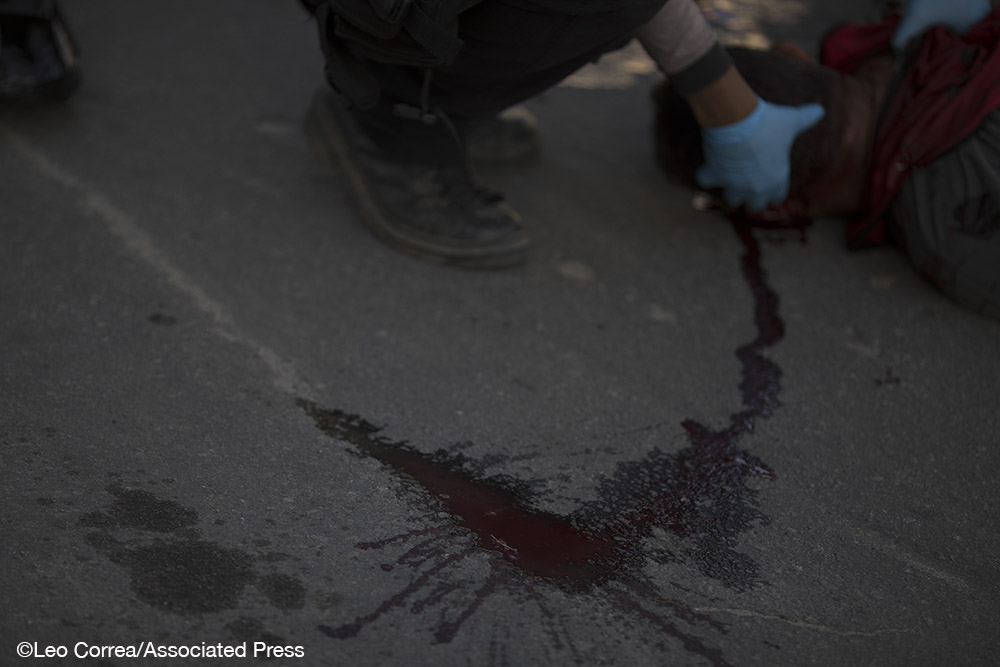
In this Sept. 1, 2018 photo, blood covers the street where a motorcycle taxi driver was found shot dead as a forensic police officer inspect the body in Seropedica, greater Rio de Janeiro, Brazil. Authorities say there are indications that the militia groups that used to be minor players in the Rio underworld are now becoming shot callers, and not easily controlled. (AP Photo/Leo Correa)

In this Sept. 1, 2018 photo, the body of a motorcycle taxi driver lies on the street after he was shot dead, as police and pedestrians move about in Seropedica, greater Rio de Janeiro, Brazil. Militias are terrorizing residents in areas they control and expanding illegal businesses. (AP Photo/Leo Correa)
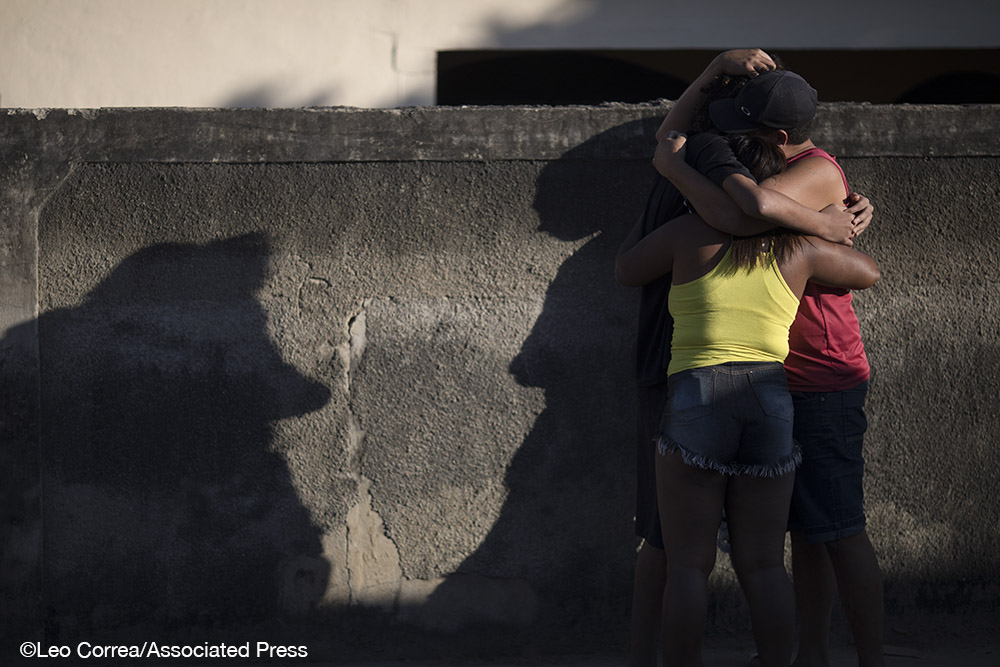
In this Sept. 1, 2018 photo, three people embrace next to the crime scene where the body of a motorcycle taxi driver lies on the ground after he was shot dead in Seropedica, greater Rio de Janeiro, Brazil. Today some crime experts argue that militias have become Rio's biggest security threat, with methods that are being copied in other areas of Latin America's largest nation. (AP Photo/Leo Correa)
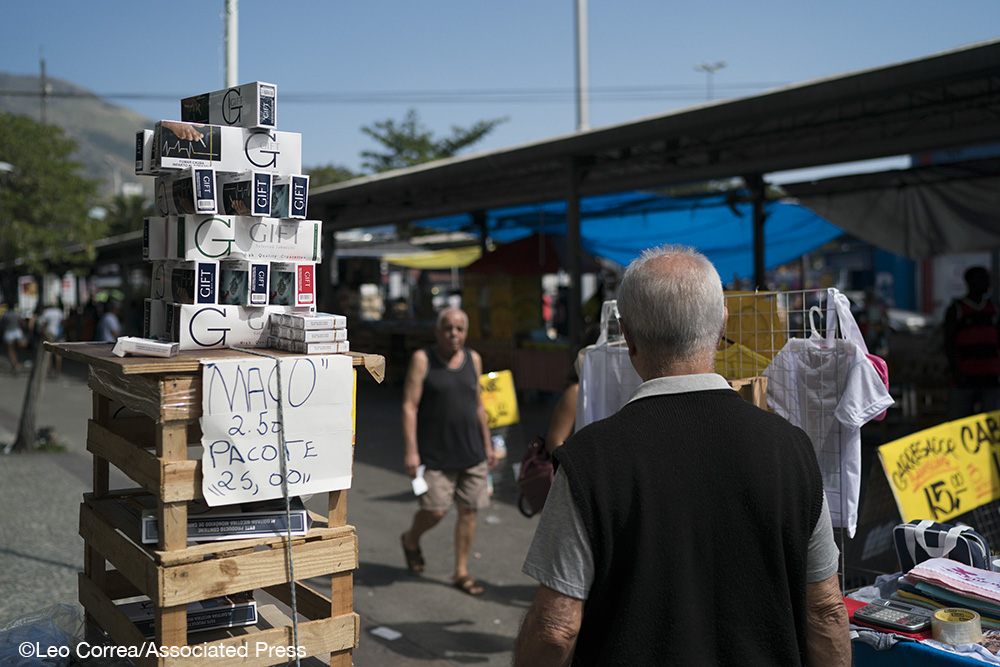
In this Aug. 24, 2018 photo, packs of illegal cigarettes stand for sale at a market in the Realengo neighborhood of Rio de Janeiro, Brazil. Militias buy boxes of cigarettes in Paraguay for 14 cents a pack and then smuggle them home and sell them for up to $2.15, giving the groups the lion's share of an estimated $330 million in profits and add to a portfolio of illicit operations the groups have honed over two decades. (AP Photo/Leo Correa)

In this Aug. 31, 2018 photo, a forensic police officer inspects a car where the body of a man was found in Belford Roxo, greater Rio de Janeiro, Brazil. Some crime experts argue that militias have become Rio’s biggest security threat, with methods that are being copied in other areas of Latin America’s largest nation. (AP Photo/Leo Correa)
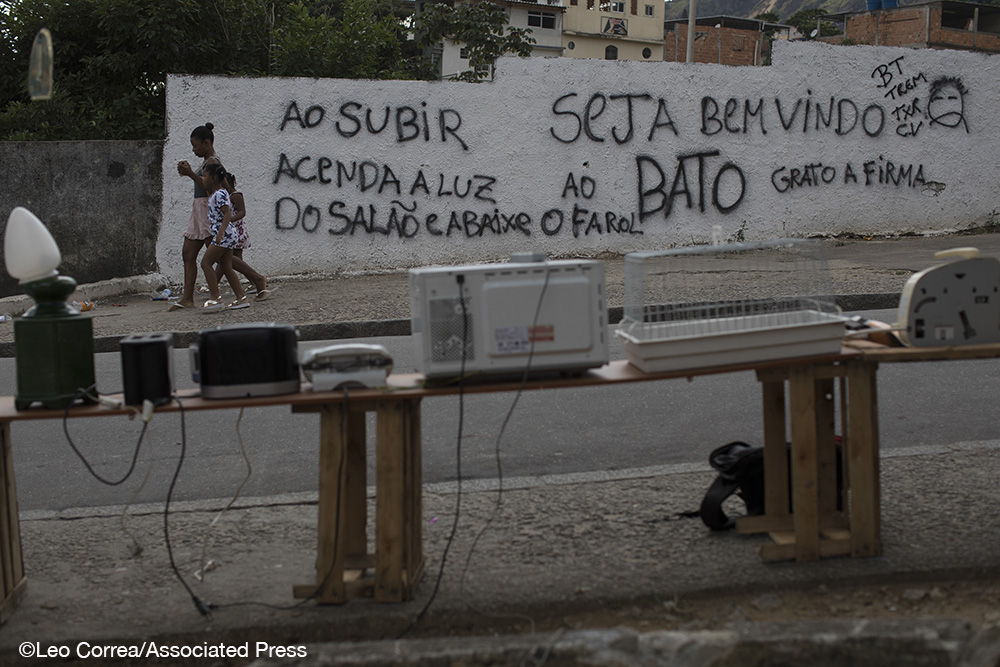
In this May 19, 2018 photo, residents walk past used items for sale and a wall covered by a Portuguese message from drug traffickers: "Welcome to Bato. When ascending, turn on your interior light and lower the headlight," in the Bateau Mouche slum of Rio de Janeiro, Brazil. Some crime experts argue that militias have become Rio's biggest security threat, with methods that are being copied in other areas of Latin America's largest nation. (AP Photo/Leo Correa)
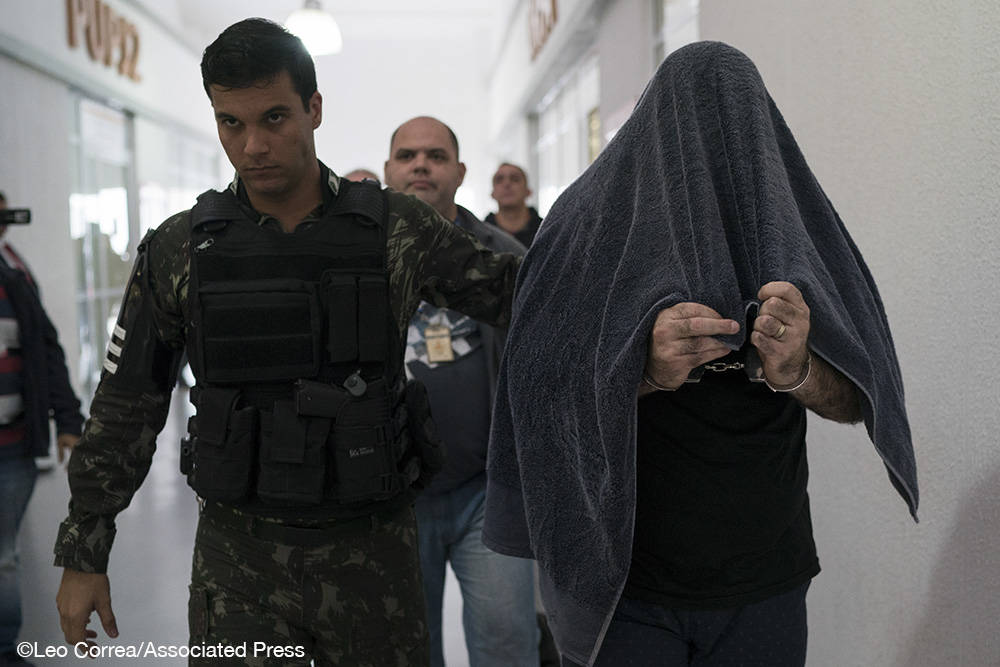
In this Aug. 2, 2018 photo, Army Sub Lieutenant Marco Antonio Gomes Sacramento, right, is escorted in handcuffs by a soldier after police arrested him for taking part in a paramilitary group, known as a militia in Rio de Janeiro, Brazil. Part of the challenge of combating militias is their deep connections in law enforcement ranks. (AP Photo/Leo Correa)
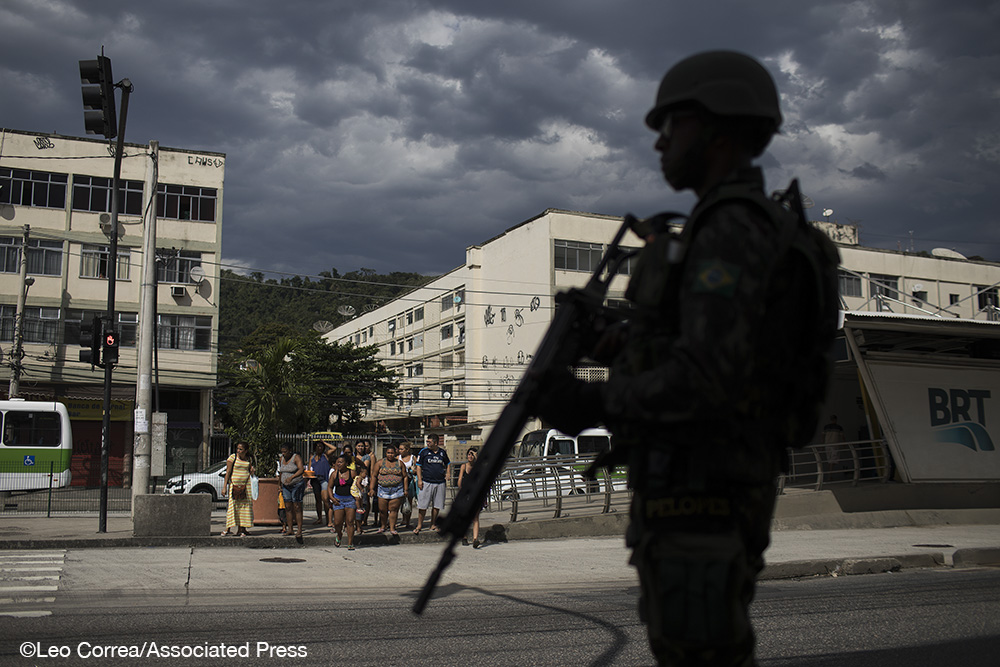
In this May 19, 2018 photo, a soldier patrols during an operation while pedestrians wait to cross the street in the Bateau Mouche slum of Rio de Janeiro, Brazil. This particular street separates the area controlled by drug traffickers in the Bateau Mouche slum, from the area controlled by a militia in the Chacrinha slum. (AP Photo/Leo Correa)

In this July 30, 2018 photo, a man rides his bicycle past a destroyed rapid bus transit stop at the entrance to the Cesarao slum in Rio de Janeiro, Brazil. The bus stop was burned down by residents angry at police. (AP Photo/Leo Correa)
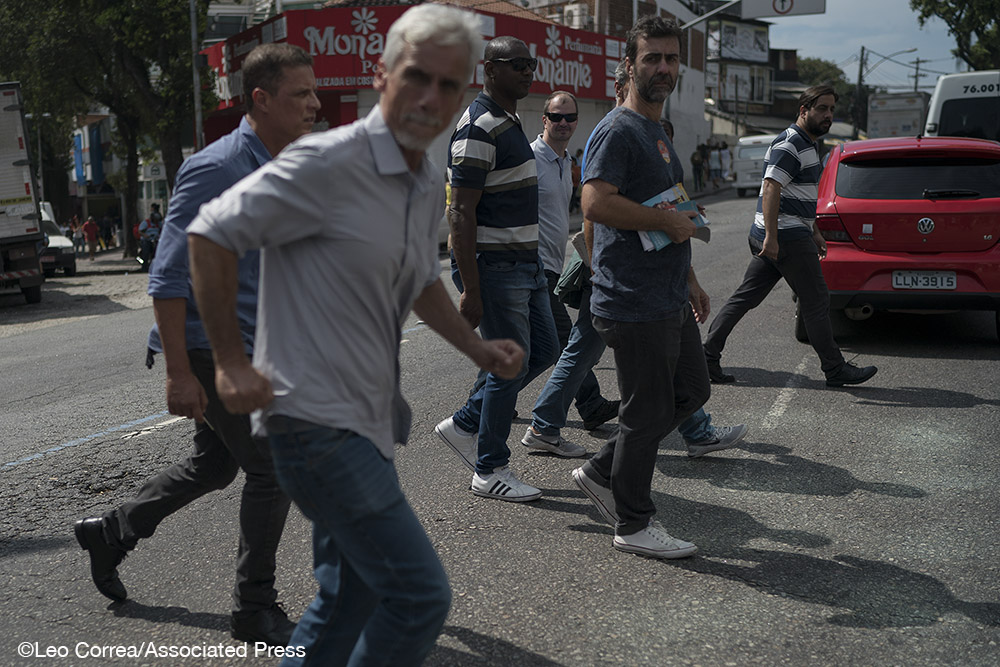
In this Aug. 24, 2018 photo, state legislator Marcelo Freixo, holding books, center right, crosses a street surrounded by security guards as he campaigns for reelection in Rio de Janeiro, Brazil. Militias, he said, have so completely taken over parts of Rio that confronting them would require gathering street intelligence, deploying state services and using physical force. (AP Photo/Leo Correa)
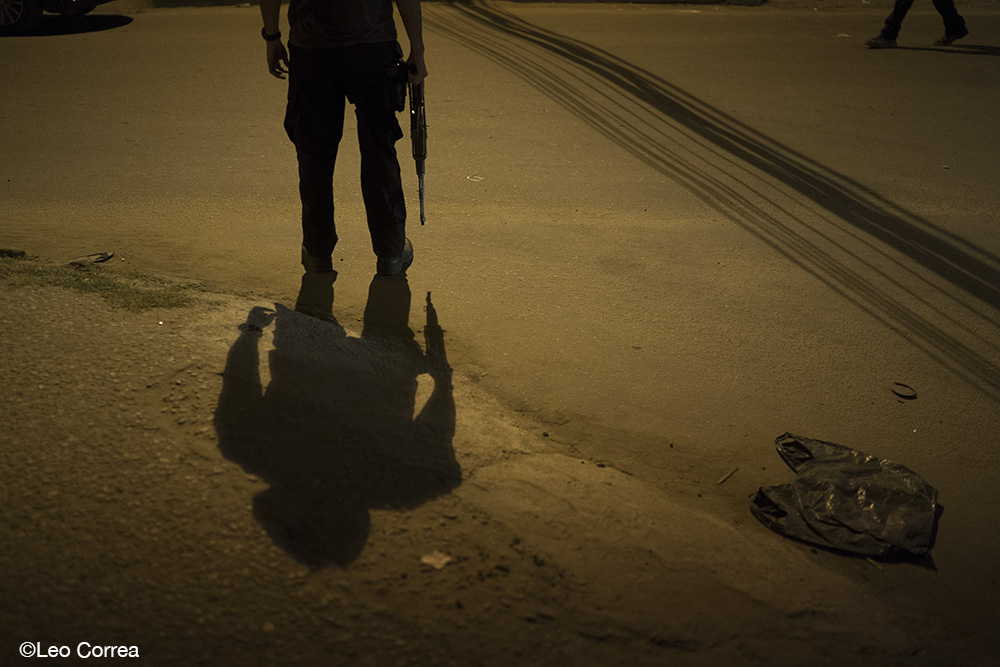
In this Aug. 31, 2018, photo, a civil police officer casts his shadow on the street as he stands in guard on a crime scene where a body of a man was found in a car in Belford Roxo, greater Rio de Janeiro, Brazil. According to the police officers this region have being scenario of confrontations between militia and drug traffickers. (Photo/Leo Correa)
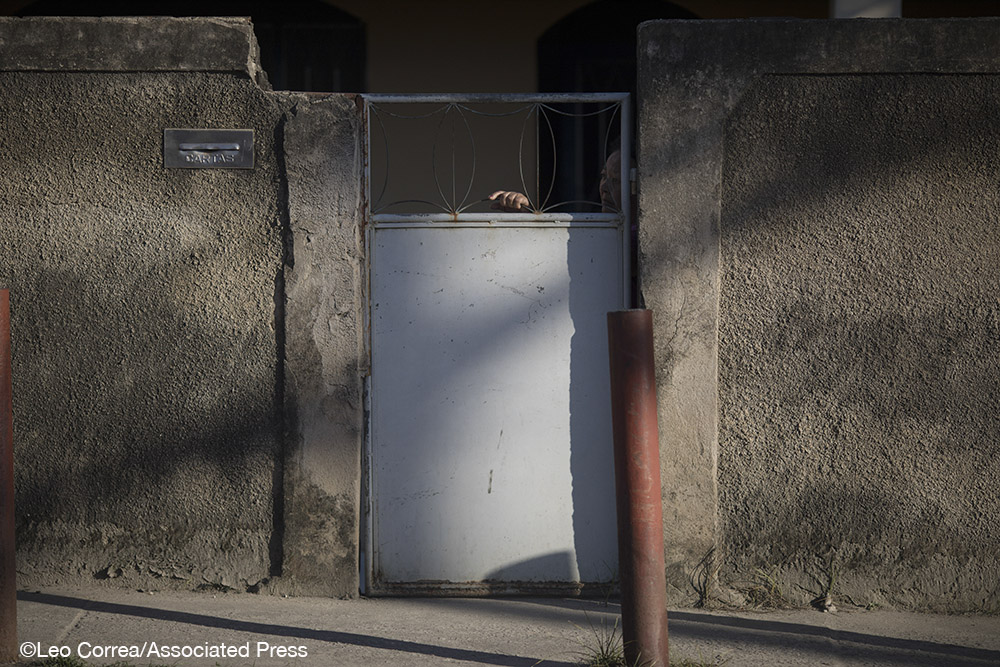
In this Sept. 1, 2018 photo, a woman peers from behind her doorway to watch police work a crime scene where a motorcycle taxi driver was shot dead in the street in Seropedica, greater Rio de Janeiro, Brazil. Fear is palpable among residents in militia-controlled areas, which from the outside seem like normal neighborhoods and cities. (AP Photo/Leo Correa)
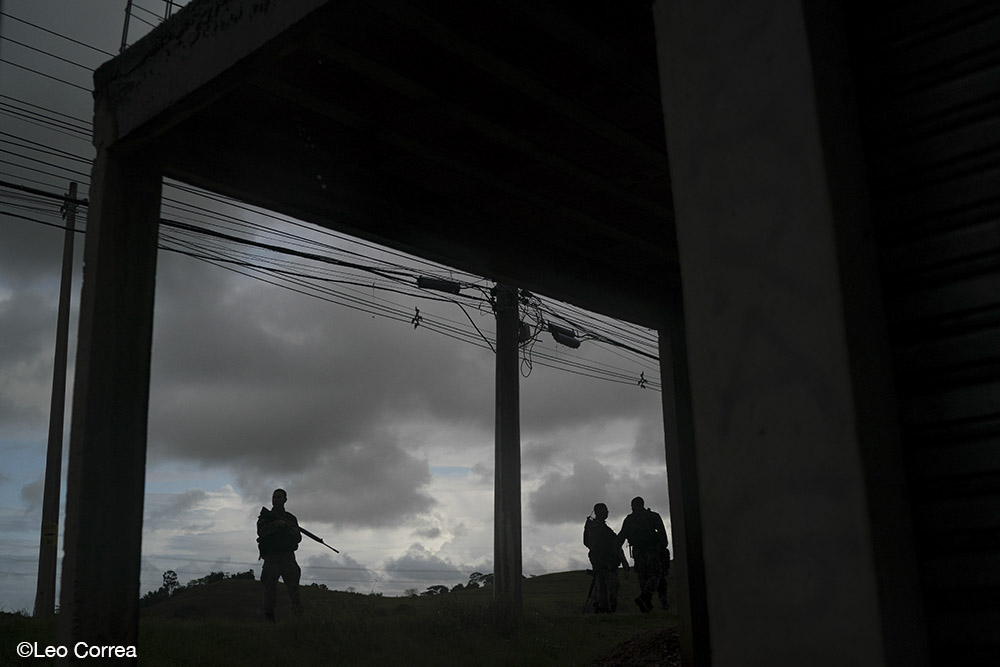
In this Aug. 1, 2018, photo, police officers patrol a street during operation after confrontations between drug traffickers and militia in Antares slum, Rio de Janeiro, Brazil. The state's security ministry estimates that militias now control about a quarter of the sprawling state of Rio de Janeiro. (Photo/Leo Correa)
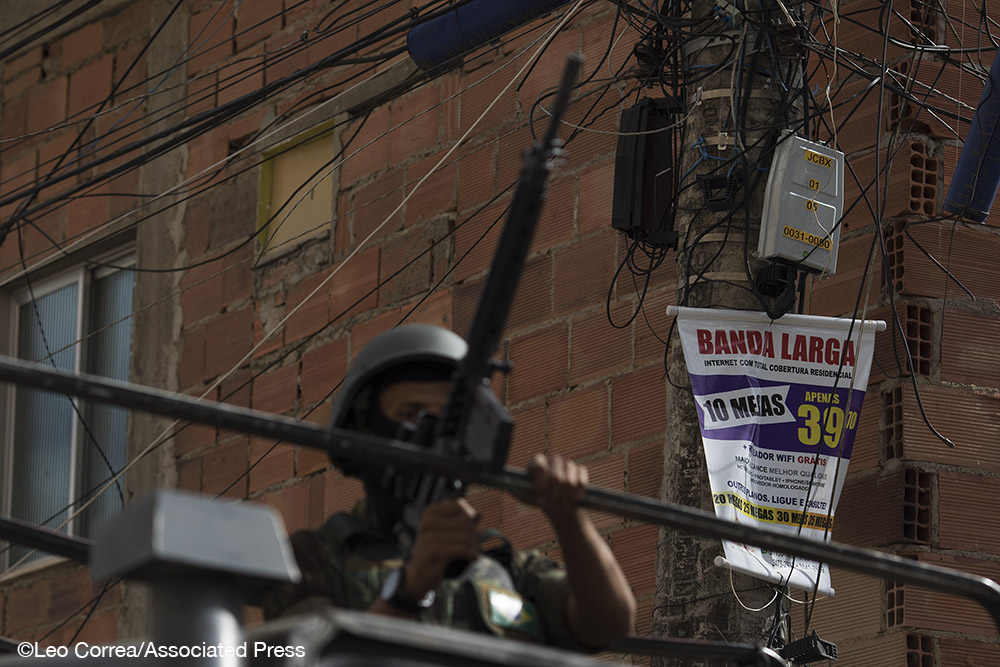
In this May. 19, 2018 photo, a soldier patrols where an add offers internet service in the Bateau Mouche slum of Rio de Janeiro, Brazil. Militias impose surcharges on cable service, electricity and transportation. (AP Photo/Leo Correa).
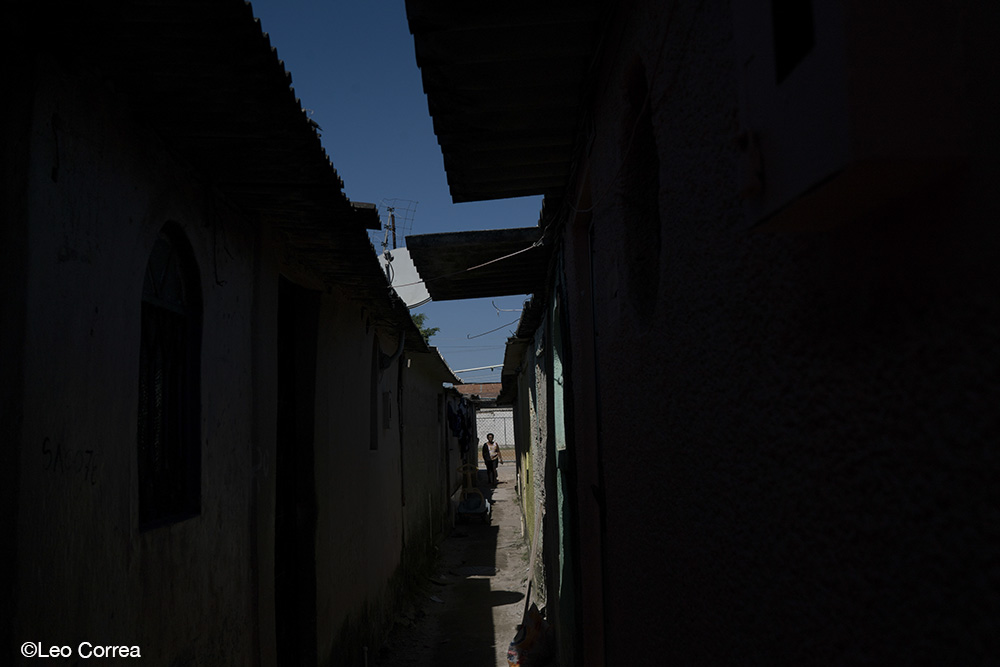
In this Aug. 14, 2018, photo, a woman walks on an alley during a police operation after confrontations between drug traffickers and militia at Antares slum, Rio de Janeiro, Brazil. In recent months, militias have been fighting with drug traffickers for the control of large areas in western Rio. (Photo/Leo Correa)
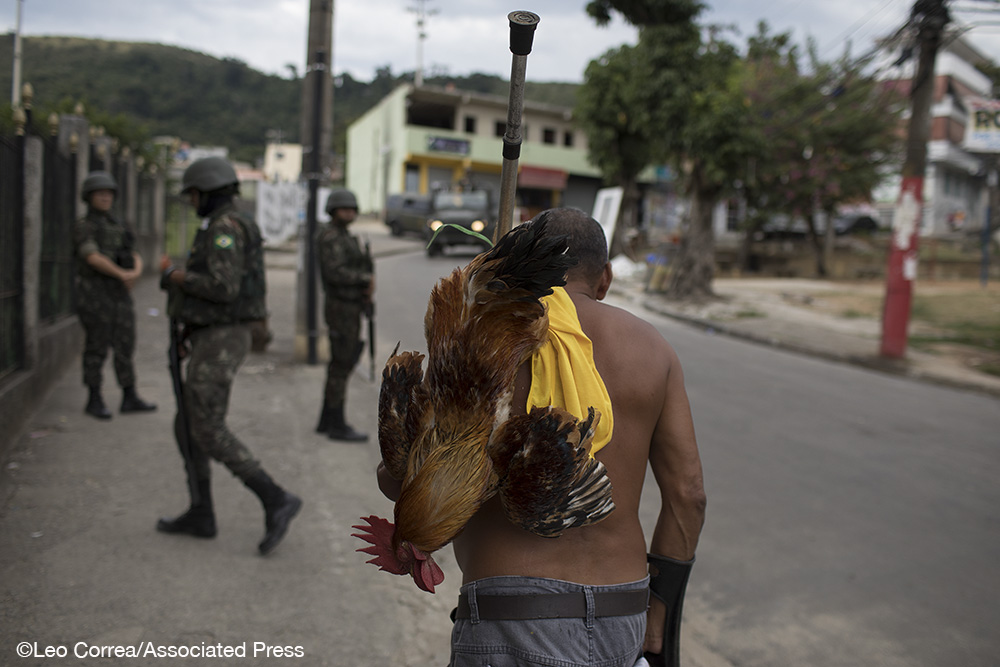
In this May 19, 2018 photo, a man carries a rooster as walks on the sidewalk where soldiers stand guard in the Bateau Mouche slum of Rio de Janeiro, Brazil. The state's security ministry estimates that militias now control about a quarter of the sprawling state of Rio de Janeiro. (AP Photo/Leo Correa)























